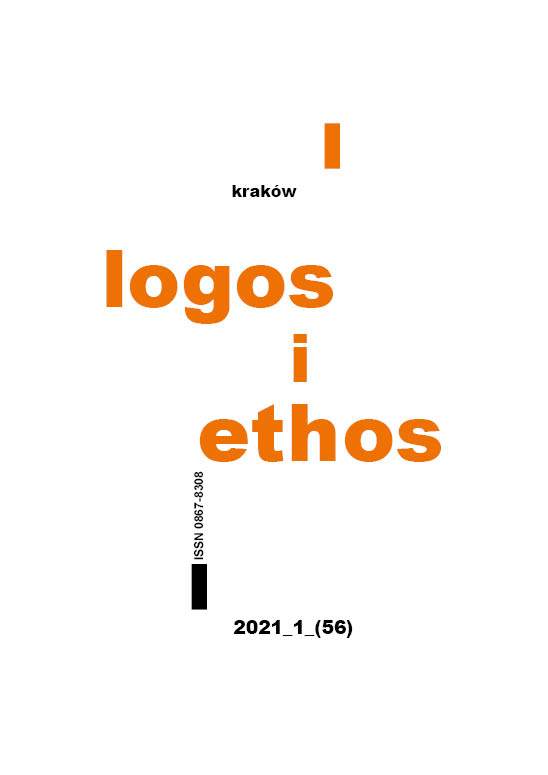The Paradoxes of Person – Some Remarks
DOI:
https://doi.org/10.15633/lie.3943Abstrakt
The goal of the article is to present and analyze the paradoxes of person in the historical, logical-epistemological, and systematic aspect. Their historical source should be sought already in the beginnings of philosophical reflection on the issue of personhood. The interpretation of this concept has been influenced by the Christian religion which contributed to highlighting the opposition between properties common to man and other beings, and those which distinguish him from those beings. It was finally reflected in the paradoxes of person which are construed today as the opposition between existence (being a person) and becoming; (ontic) non-communicability and (intentional) communicability; overtness (knowability) and covertness (essential unknowability); being a whole and being a part. These paradoxes, however, are not antinomies or paralogisms in the logical sense. They cannot be explained away by flaws in human thinking or cognition. They are an expression of the opposite properties of personhood which represent aporias – objective difficulties. As such, they arise from the way a person exists. The paradoxes of person are superimposed, so to say, onto the paradoxes of being, e.g. that of identity and change. They cannot be interpreted as compounds of being. Therefore, they are most often treated as a result of the complex, spiritual-corporeal structure of man. Another problem, just as important as the cause of paradoxes, is the question of their significance. For they may be interpreted as a manifestation of a way of personal being that extends between extreme (almost contradictory) poles; multifaceted, diverse, never limited only to the arrangement of particular properties which form the paradoxes, or to that which can be known through them.
Bibliografia
Cargile J., Paradoxes, in: The Oxford Companion to Philosophy, ed. T. Honderich, Oxford 2005, p. 678–680.
Clark M., Paradoxes from A to Z, New York 2007.
Crosby J. F., The Selfhood of the Human Person, Washington, D.C. 1996.
Donceel J. F., Philosophical Anthropology, New York 1967.
Hołub G., Osoba ludzka: pomiędzy paradoksem a wieloaspektowością istnienia, in: Spór o osobę w świetle klasycznej koncepcji człowieka. Studia i rozprawy, red. P. S. Mazur, Kraków 2012, p. 185–205.
Joray P., The Principle of Contradiction and Ecthesis in Aristotle’s Syllogistic, “History and Philosophy of Logic” 35 (2014) 3, p. 219–236.
Lechniak M., Antynomia, in: Powszechna encyklopedia filozofii, t. 1, red. A. Maryniarczyk, Lublin 2000, p. 273–275.
Łukasiewicz J., O zasadzie sprzeczności u Arystotelesa, Kraków 1910.
Łukasiewicz J., On the Principle of Contradiction in Aristotle, “The Review of Metaphysics” 24 (1971) 3, p. 485–509.
Lycan W. G., What, exactly, is a paradox?, “Analysis” 70 (2010) 4, p. 615–622.
Mouroux J., The Meaning of Man, transl. A. H. C. Downes, London 1948.
Olin D., Paradox, Chesham 2003.
Parfit D., Reasons and Persons, Oxford 1984.
Possenti V., Il nuovo principio persona, Roma 2013.
Quine W. V., The Ways of Paradox and Other Essays, New York 1966.
Sainsbury R. M., Paradoxes, New York 2009.
Smilansky S., 10 Moral Paradoxes, Malden 2007.
Spaemann R., Person. The Difference between ‘Someone’ and ‘Something,’ transl. O. O’Donovan, Oxford 2017.
Szymanek K., Paralogizm i sofizmat, in: Powszechna encyklopedia filozofii, t. 8, red. A. Maryniarczyk, Lublin 2007, p. 20–21.
Wald B., Substantialität und Personalität. Philosophie der Person in Antike und Mittelalter, Paderborn 2005.
Younis R. A., Euporia: On the Limits, Horizons and Possibilities of Critique (or: On Reconstruction), “Reconstructing Social Theory, History and Practice” 35 (2017), p. 89–107; http://dx.doi.org/10.1108/S0278-120420160000035003 (12.12.2016).
Pobrania
Opublikowane
Numer
Dział
Licencja
Autorzy publikujący w czasopiśmie udzielają jego wydawcy zgody o następującej treści:
- Autor zachowuje autorskie prawa majątkowe do utworu, a jednocześnie udziela wydawcy czasopisma zgody na jego pierwszą publikację w wersji drukowanej i wersji online na licencji Creative Commons Uznanie autorstwa 4.0 Międzynarodowe oraz zgody na wykonywanie opracowań, w tym przekładów.
- Autor ma możliwość udzielania zgody niewyłącznej na opublikowanie utworu w wersji, która ukazała się w czasopiśmie (np. zamieszczenia go w repozytorium instytucjonalnym lub opublikowania w książce), wraz z informacją o jego pierwszej publikacji w czasopiśmie.
- Autor może umieścić swój utwór online (np. w repozytorium instytucjonalnym lub na swojej stronie internetowej) jeszcze przed zgłoszeniem utworu do czasopisma.

